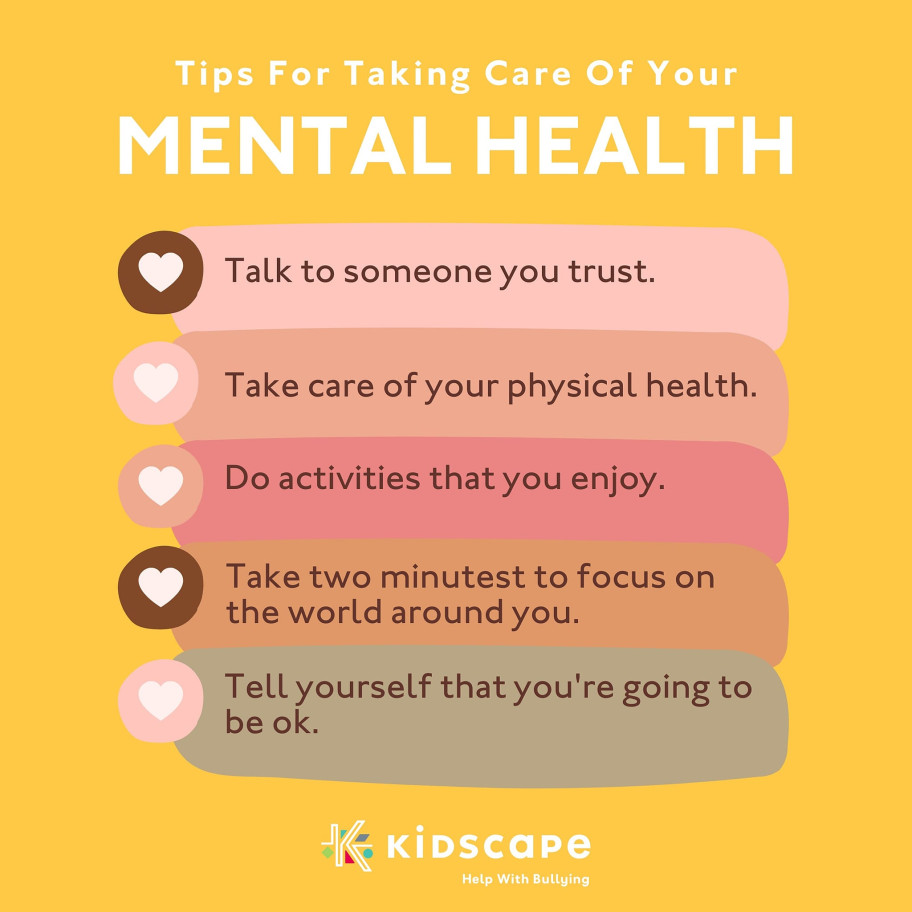5 Tips for Improving Your Mental Health
Mental health affects people of all ages. Having to deal with school life, friends and the pressures of social media, it is no wonder that more young people are beginning to experience more symptoms of anxiety and depression.
In fact, one in six young people in the United Kingdom were likely to have experienced mental health issues in 2021, an increase from one in nine during previous years (2017). It is more important than ever to develop good methods of dealing with your mental health and stress. You are not alone!
As part of Children’s Mental Health Week (February 6-12), we at SUSO have explored some tips for improving your mental health. Whether you are a teenager struggling with your own mental health caused by relationships, friendships, exam stress or being the victim of bullying, these tips can help.
1. Know you’re not alone
Making sure you spend the time to understand your own mental health and its triggers might not only help you but also encourage other classmates to do the same.
This can be particularly so during stressful times, such as exams and coursework deadlines. If you are struggling with this demand, or feeling more pressure than usual, your friends are probably feeling it too.
Reaching out and finding ways to approach this together could be beneficial – such as connecting with study groups, for example.
2. Call out bullying
All forms of bullying can have an impact on your mental health, which can lead to some dark thoughts. It doesn’t matter where this bullying takes place, whether it be in school, outside of school or cyberbullying, it’s a serious matter – and it’s not your fault.
It doesn’t matter what others may say – if you don’t like how someone talks to you, it is okay to not be happy about this.
It’s important that you deal with it, though. Recognising that this isn’t acceptable and then talking to someone about it is a big, positive step in solving the problem. Don’t keep it to yourself, call it out.
3. Set routines
As creatures of habit, we thrive on relying upon structured routines. This can be a regular bedtime, family time to eat together, or an encouraged weekend hobby. Change can be a stress trigger and so having this stability elsewhere can help you feel more at ease both when change occurs and during regular daily life.
This can also ensure that you continue to get the correct amount of sleep, food, and self-care hygiene for a healthy and comfortable life. As symptoms of anxiety and depression can be over- or under-sleeping, eating, and washing, it is important that you maintain healthy routines to keep these symptoms at a minimum.
Try setting yourself a night-time routine such as having a relaxing bath, reading a book or reflecting on the positive things about your day – little details like these can help you feel more comfortable and encourage you to maintain your routine.
4. Follow your interests
Your interests and hobbies are a crucial part of who you are and allowing yourself to develop these skills and abilities could be key to helping fight off the unwanted symptoms of mental health problems. Allowing yourself to explore this creative side, or to develop your abilities, in a relaxed environment can help your mental health.
Not only do hobbies – such as sport, art, or gaming – allow you to find something which creates genuine happiness in your life, but it can also distract you from your worries – allowing to reduce stress, low moods, and depression. This might also raise your self-esteem as you develop skills and meet new people through these hobbies.
5. Spend more time outdoors
Being outside not only improves your physical health but it can also have positive effects on your mental health. Embracing nature can reduce the worries and stress that you feel, and is an opportunity to connect with your friends and family.
Time outside also removes your access to technology for a short time. As much as you might not want to believe this, avoiding technology can be beneficial. Social media actually increases the likelihood of feeling depressed and hopeless, meaning that a short time spent away from technology could be beneficial in reducing this.
Balancing school, family life and social life can lead to a lot of stress. It is important that you manage to take some breaks from these worries and allow yourself to relax. Be kind to yourself – whether you enjoy walking outside with your friends or spending time doing something you enjoy, find what makes you happy and help build these into a routine.
Making sure you create a safe environment, for both you and others, can help relieve some of the symptoms of poor mental health and give you better coping mechanisms when stress increases.
Children’s Mental Health Week runs from February 6-12. For free resources on how to make meaningful connections with others, visit the campaign website.








